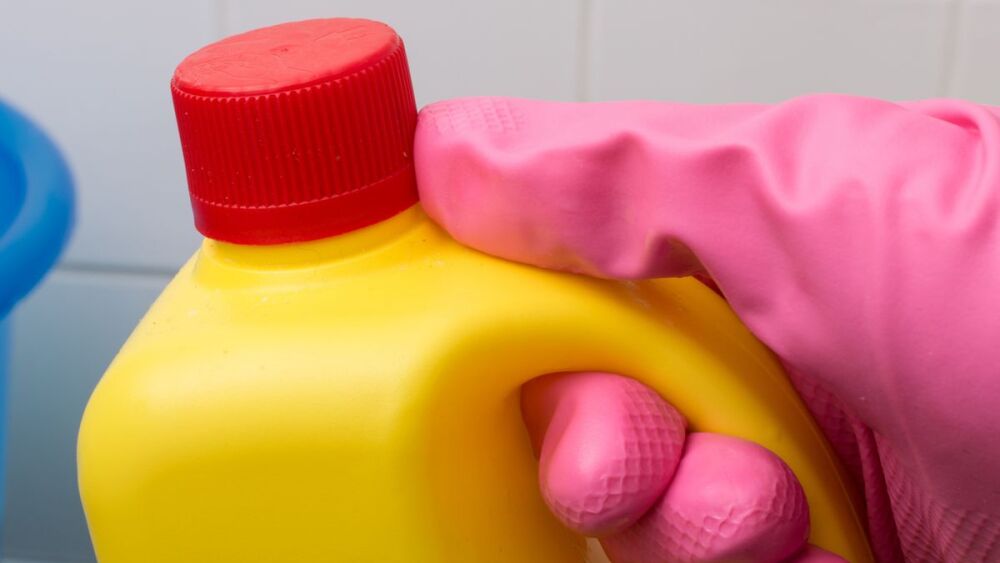An abundance of information and misinformation surrounds the COVID-19 pandemic. Many citizens turn to public safety agencies and local government officials for guidance. Share these resources to protect your communities from misinformation.
MYTH: Drinking bleach or other disinfectants can eradicate COVID-19
Bleach is a common component of household disinfectants. Other names for chemical bleaching agents include sodium hypochlorite, calcium hypochlorite, hydrogen peroxide and sodium carbonate peroxide.
After President Donald Trump commented on looking into the use of disinfectants in reference to COVID-19 in saliva and injections, manufacturer RB released the following statement:
“Due to recent speculation and social media activity, RB (the makers of Lysol and Dettol) has been asked whether internal administration of disinfectants may be appropriate for investigation or use as a treatment for coronavirus (SARS-CoV-2). As a global leader in health and hygiene products, we must be clear that under no circumstance should our disinfectant products be administered into the human body (through injection, ingestion or any other route). As with all products, our disinfectant and hygiene products should only be used as intended and in line with usage guidelines. Please read the label and safety information.”
Intravenous bleach injections have been shown to cause acute kidney injury and blood clots. Ingesting bleach can cause the esophagus to rupture and can be deadly. Bleach is a corrosive substance that can also cause skin damage, including chemical skin burns, and damage to your corneas if exposed to your eyes. There is no evidence at all that ingesting or injecting bleach is helpful. It is harmful and may be deadly.
The message: Do not drink bleach or inject it into your skin. If you or someone you know has injected or ingested bleach or any other household disinfectant, please contact Poison Control immediately at (800) 222-1222 or go to the nearest Emergency Department immediately.
MYTH: Hydroxychloroquine is a universal COVID-19 cure
On Apr. 24, 2020, the FDA cautioned against the use of hydroxychloroquine or chloroquine for COVID-19 outside of the hospital setting or a clinical trial due to risk of heart rhythm problems. “Hydroxychloroquine and chloroquine have not been shown to be safe and effective for treating or preventing COVID-19,” an FDA statement reads.
The FDA had issued an emergency authorization for experimental coronavirus treatments using hydroxychloroquine, on Mar. 29, 2020, though the Department of Health and Human Services noted at that time that “anecdotal reports suggest that this drug may offer some benefit in the treatment of hospitalized COVID-19 patients, but clinical trials are needed to provide scientific evidence that these treatments are effective.”
The FDA noted in the April 24 statement that it is now aware of reports of “serious heart rhythm problems in patients with COVID-19 treated with hydroxychloroquine or chloroquine, often in combination with azithromycin and other QT prolonging medicines.”
The statement noted hydroxychloroquine and chloroquine can cause abnormal heart rhythms such as QT interval prolongation and ventricular tachycardia. These risks may be increased when these medicines are combined with other medicines known to prolong the QT interval, including azithromycin, which is also being used in some patients without FDA approval for COVID-19. Patients with comorbidities including heart and kidney disease are likely to be at increased risk.
“Be aware that there are no proven treatments for COVID-19 and no vaccine,” the FDA noted.
The message: If you are taking hydroxychloroquine or chloroquine for COVID-19 and experience irregular heartbeats, dizziness or fainting, seek medical attention right away by calling 911. Do not buy or take these medicines without a prescription from your healthcare professional. Serious poisoning and death have been reported after mistaken use of a chloroquine product not intended to be taken by humans.
MYTH: Ibuprofen is not safe to take if you have COVID-19
In March, it was suggested that people avoid anti-inflammatory drugs such as ibuprofen, which is a non-steroidal anti-inflammatory drug (NSAID). An article in Respiratory Medicine published in 2017 reported that patients who used NSAIDs when they had community-acquired pneumonia were hospitalized longer than patients who did not, however this study was small (only 57 patients) and observational. As pointed out in a recent article in Chest, there is not yet enough evidence to identify a harmful link between ibuprofen and patients with COVID-19; the authors in this article advise continuing to follow the World Health Organization’s recommendations to use acetaminophen in the management of fever in patients with COVID-19, however the organization also “does not recommend against the use of ibuprofen”.
The message: If you have concerns about medications you may take, you should talk to your healthcare provider.
MYTH: You should stop taking ACE-inhibitors or ARBs (Lisinopril, Losartan) if you have COVID-19
There has been concern about an angiotensin converting enzyme (ACE) co-receptor (ACE2) playing a role in how SARS-CoV-2 enters cells. This receptor is found widely throughout the body and plays a role in the renin-angiotensin-aldosterone system (RAAS) in addition to its function as a receptor for SARS-CoV-2. Concern has been raised that the use of medications that work on the RAAS, including angiotensin converting enzyme inhibitors (ACE inhibitors) and angiotensin receptor blockers (ARBs), which are given to treat high blood pressure, heart disease, kidney disease, and diabetes, may change this ACE2 receptor and there is uncertainty about whether this would be harmful or beneficial to patients with COVID-19.
In a new report published in the New England Journal of Medicine on Apr. 23, 2020, it is noted that this needs to be further studied and there is not enough data to determine the effects of these medications yet in COVID-19 patients. The paper also notes, however, there is significant concern that stopping ACE-inhibitors or ARBs may be harmful in high risk patients who have known or suspected COVID-19.
The message: If you have concerns about medications you may take, you should talk to your healthcare provider before making any changes.
Read next: Communicating through COVID-19: 6 tips for public safety social media outreach



